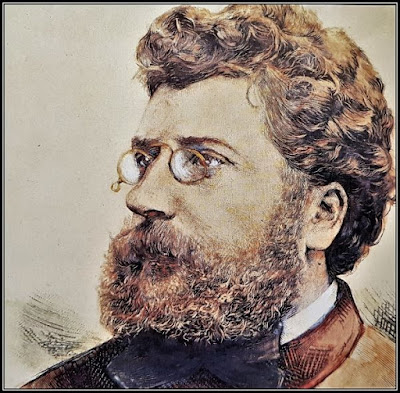 |
| A portrait of Georges Bizet, whose brief life concealed a lasting influence on opera and musical realism. |
Georges Bizet lived a strikingly short life—only thirty-seven years—and yet left behind a legacy that would shape the course of operatic history. During his lifetime, he never experienced the full recognition his talent deserved. Ironically, the work that would secure his immortality, Carmen, initially met with misunderstanding, resistance, and even hostility.
Bizet’s artistic path was marked by constant compromise. Institutional constraints, conservative taste, and theatrical conventions repeatedly obstructed the free expression of his creative instincts. These pressures undoubtedly contributed to the fact that he did not enjoy the success he merited while alive.
His detractors often outnumbered his supporters. Yet the posthumous reassessment of his music tells a different story. The philosopher Friedrich Nietzsche, for instance, famously praised Bizet’s music as an antidote to what he perceived as the excessive intellectualism, dogmatism, and sonic heaviness of Richard Wagner’s music dramas. Such a comparison reveals that Bizet’s reception was shaped less by objective artistic value and more by aesthetic ideologies, prejudices, and cultural rivalries of his time.
Despite his limited lifespan and the relatively small amount of time he was able to devote fully to composition, Bizet created music of remarkable freshness and vitality. His orchestration is distinguished by clarity, transparency, and refined color, while his melodic invention balances elegance with emotional immediacy. His music is capable of soothing the listener, yet equally capable of igniting dramatic tension and visceral excitement.
Above all, Carmen stands as a turning point in operatic history. With its uncompromising theatrical realism, psychological depth, and rejection of idealized romanticism, the work anticipates the rise of Italian verismo. In this sense, Bizet emerges not only as a gifted melodist and orchestrator, but also as a visionary figure whose influence extended far beyond the boundaries of French opera.
Comments
Post a Comment